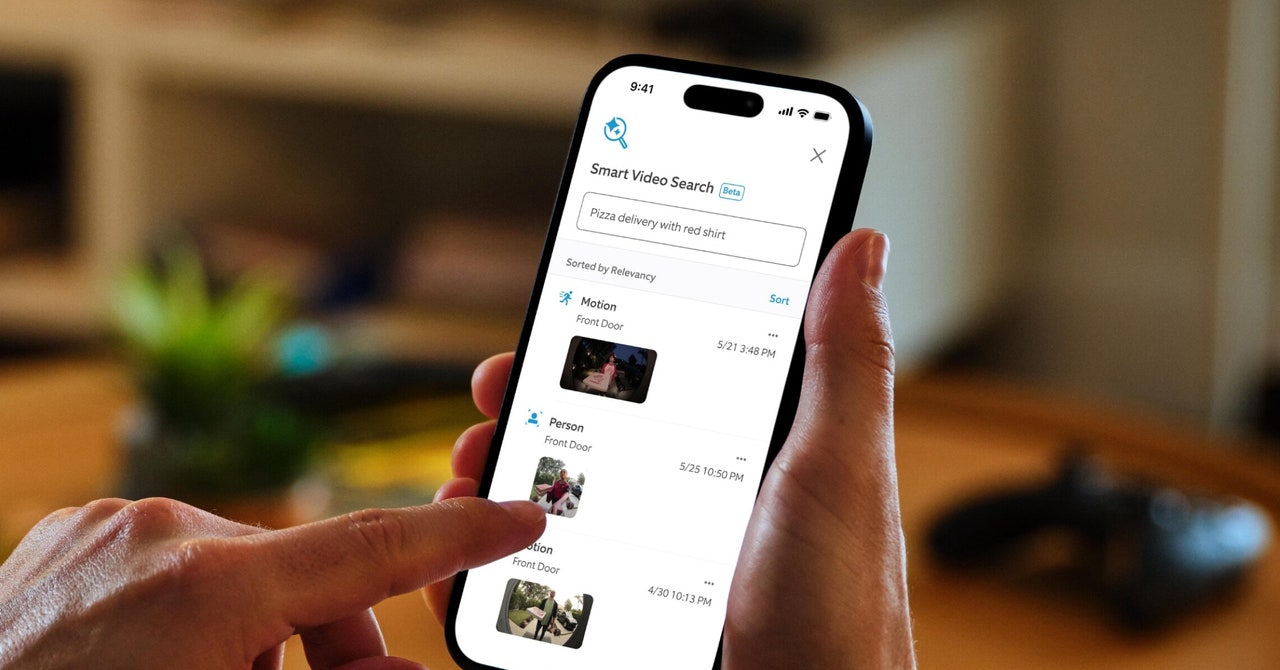Search is just the beginning. New AI models powering the search, Hamren says, will eventually allow Ring to notify users of specific situations, such as a bear wandering into the backyard or an anomalous puddle on the patio. They will also receive summaries of recent events. “Providing intelligence and context about what’s going on is ultimately where we want to go,” she says.
Homes are just one place in her sights. In the first half of 2025 Ring plans to launch a subscription plan aimed at small and medium-sized businesses. Hamren says subscribers will be better able to monitor multiple locations and give staff access to specific footage.
Search tests
Smart Video Search has been in development for more than a year, Hamren says. The AI system was trained using a technique called contrast learning to recognize packages, people, vehicles, animals, weather and actions such as running. “The things people really care about,” she says. The company trains using public videos and those shared by employees and their friends, according to Ring. Competitors including Nest and Wyze are pursuing or testing similar search tools.
Ring is putting demand behind its most expensive subscription because it requires significant cloud computing to power it, and the company, which turned profitable last year, wants to stay that way, Hamren says. She adds that focusing on what consumers will pay for creates a “very clear connection.”
Users of Ring’s Home Pro plan can opt into the search and choose which of their cameras to turn on – it works with all versions. But search doesn’t work if users have turned on end-to-end encryption, which is a higher form of privacy for their videos. Hamren says Ring is working to remove that restriction, though she didn’t specify a timeline. Searches aren’t logged to users’ accounts, but anonymized search terms can be tapped to try to improve the feature, according to Ring.
Ring search works a lot like searching for a YouTube video. Results can be filtered by relevance or time. The system can select vehicle types (such as “police” or “minivan”), but don’t expect it to distinguish a Kia from a Mazda or read a specific license plate. “Right now, we’re not focused on reading license plates,” says Hamren. The company also has no plans to offer facial recognition. Although increasingly used by governments and businesses, facial recognition continues to raise concerns about mass surveillance and the potential for mistaken identification. Hamren says Ring will revise based on user demand for the technology.




